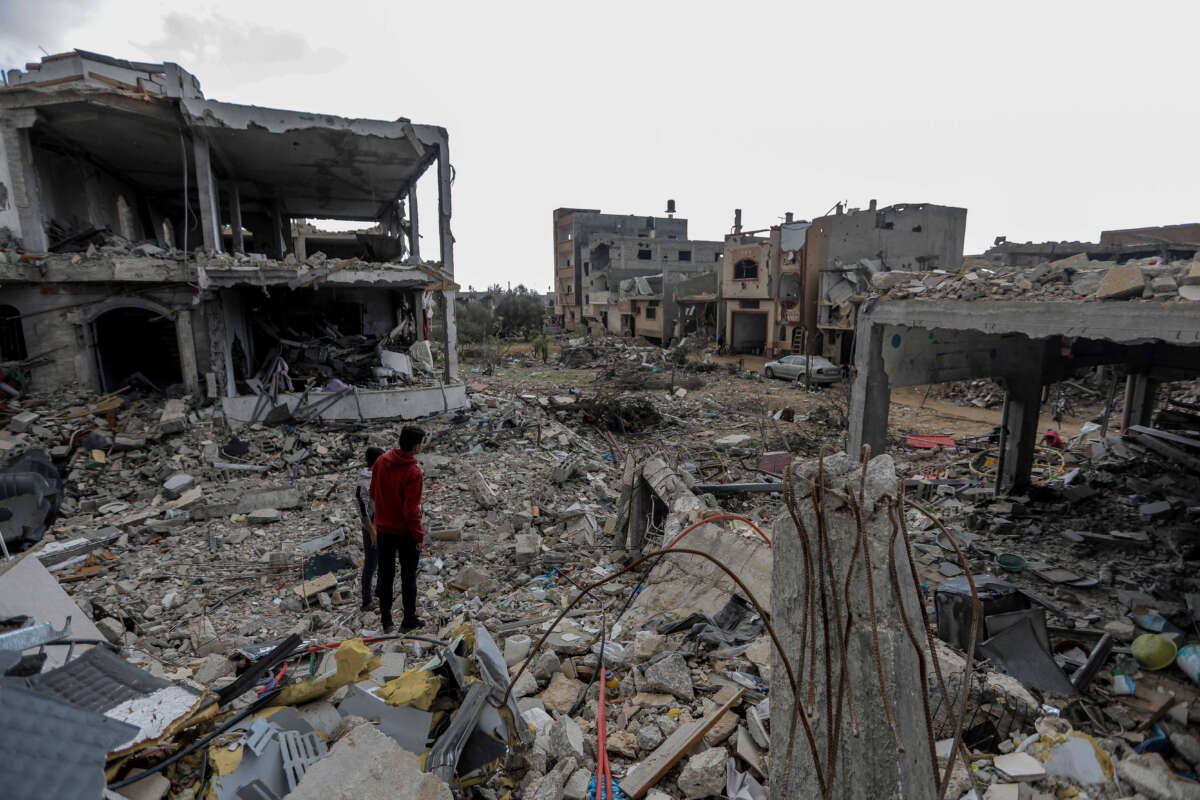Honest, paywall-free news is rare. Please support our boldly independent journalism with a donation of any size.
Last week, Israeli leaders struck an agreement with Hamas to implement a four-day pause in bombardments in Gaza after weeks of Israeli attacks that have killed over 14,500 Palestinians. But Israeli forces have continued killing Palestinians in the occupied West Bank and Gaza throughout the supposed pause.
The pause began on Friday and was originally supposed to last through Tuesday morning local time. The Qatar foreign ministry announced on Monday that the pause has been extended by two days. Just before the pause, Israel launched what appeared to be some of its most brutal attacks yet, massacring more than 100 Palestinians — including 50 from just one family — in an attack on Jabalia refugee camp in northern Gaza, and continuing its raid of Indonesian Hospital, where hundreds of patients, staff and displaced people have been taking shelter.
After the pause technically went into effect, Israel seemed to have stopped the bombing. But the Israeli military continued to impose violence against Palestinian families — including when Israeli forces opened fire at people attempting to return to their homes in northern Gaza, killing two Palestinians and wounding others.
Many Palestinians who were able to reach their homes in northern Gaza found that they had been utterly destroyed, with nothing left standing.
Meanwhile, Israeli forces have continued to execute deadly raids in the occupied West Bank; in a 24-hour period over the weekend, Palestinian health officials said on Sunday, Israeli occupying forces killed at least eight Palestinians in the West Bank. This brings the total number of Palestinians killed in the West Bank since October 7 to 239.
Palestinians in Gaza and the West Bank have been facing extrajudicial killings, sieges and forced relocation by Israeli forces and settlers for decades. But these killings are now being done with the backdrop of devastation across Gaza, a collapse of the health system, and Israel’s blockade of food, water and power.
So far, 58 people detained by Hamas forces have been released, and Israel has released more than a hundred of the thousands of Palestinians imprisoned in the West Bank, many of them children who were never convicted of a crime.
Israeli officials have pledged to continue their genocidal siege of Gaza for at least two months after the pause ends. Analyses show that Israeli forces have been massacring Palestinian civilians in Gaza at a rate that is nearly unprecedented in this century, due not just to Israel’s near-constant bombardment but also due to the scale of the bombs — many U.S.-made — that Israel has been dropping in dense urban areas.
Some U.S. officials have urged an extension of the pause in Gaza, including President Joe Biden and some members of Congress. This call falls far short of the overwhelming demands for ceasefire from the public and advocacy groups, but could represent a shift in attitudes from politicians who normally back Israel with little caveats.
Media that fights fascism
Truthout is funded almost entirely by readers — that’s why we can speak truth to power and cut against the mainstream narrative. But independent journalists at Truthout face mounting political repression under Trump.
We rely on your support to survive McCarthyist censorship. Please make a tax-deductible one-time or monthly donation.
